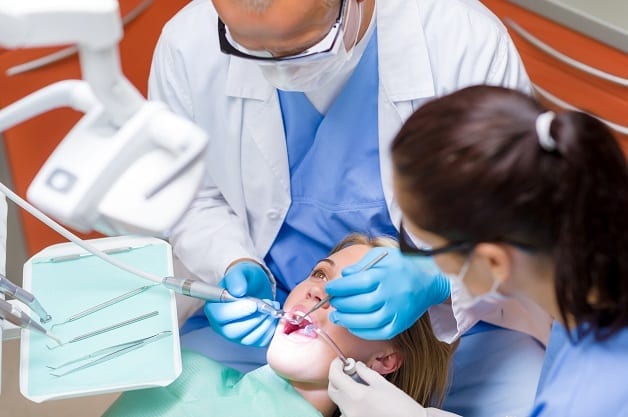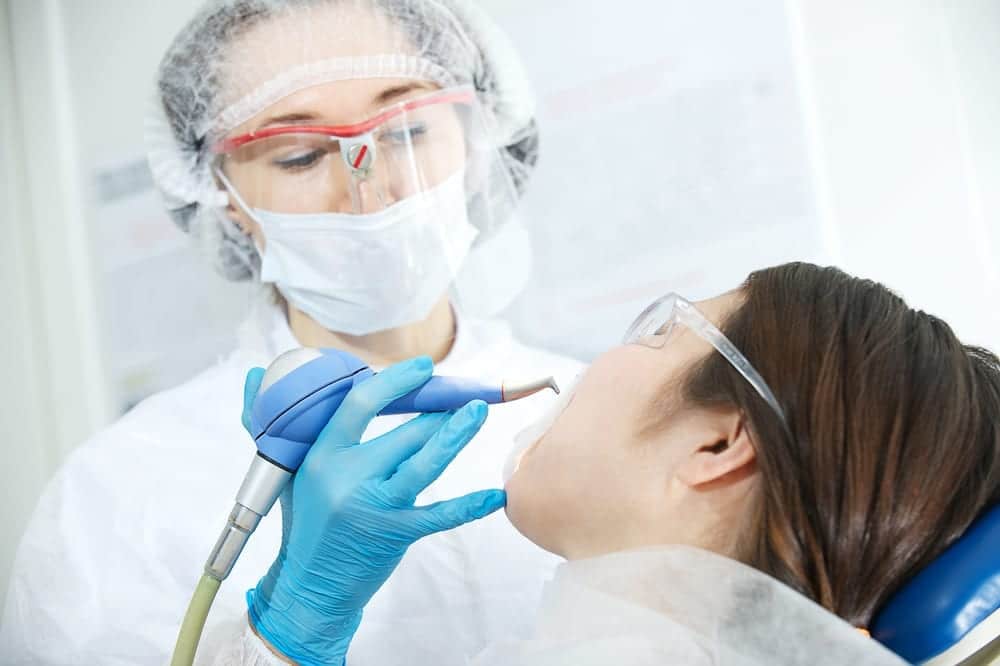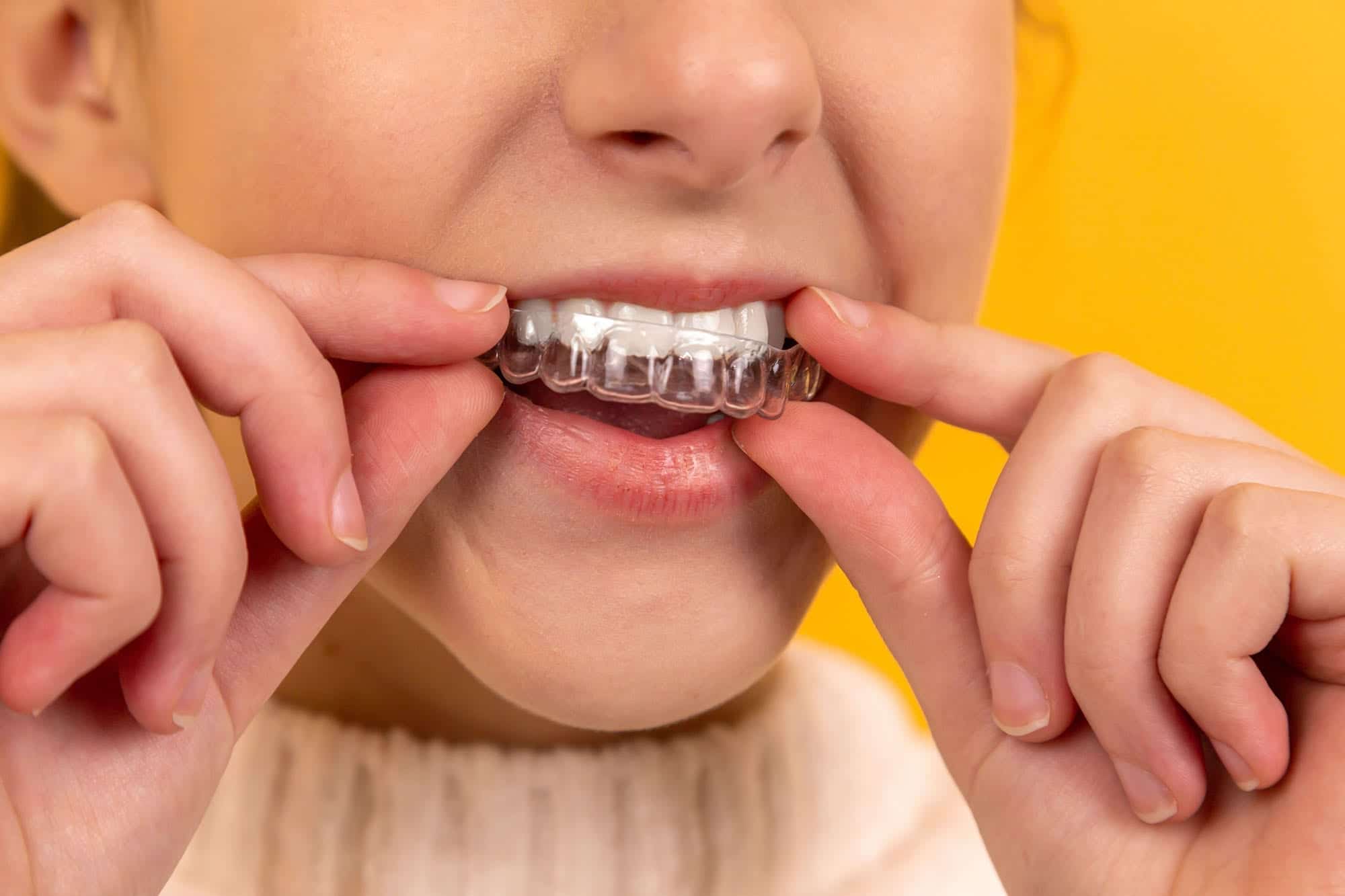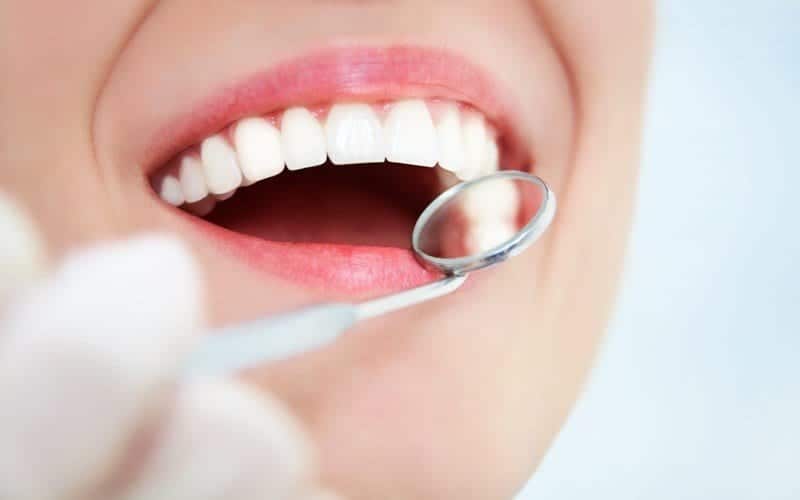If you’ve got loose teeth, then you’re probably in need of deep cleaning in order to resolve it. Ditto when it comes to advanced gum disease bordering on periodontitis. A diagnosis of mild to severe gum disease calls for a deep dental cleaning intervention.
According to the Centers for Disease Control and Prevention (CDC), 64 million adults in the U.S.A. suffer from gum disease. The good news is that gum disease is preventable and even treatable. Learn more about the condition, its symptoms, its recommendations for prevention and treatment, and what deep cleaning teeth can do about it.
What Is Periodontitis?
Periodontitis, otherwise known as pyorrhea, is a periodontal disease that requires deeper cleaning, which is more involved and complicated than regular prophylaxis. It may be caused by any of the following:
- Bacterial Infection: This is a chronic kind of infection or disease wherein so much bacteria have collected in the spaces and pockets below the gum line. These microbes will then use those places as their own personal toilet.
- Plaque/Calculus Buildup: It also happens when plaque or calculus has collected or build up so much because of inadequate oral hygiene, infrequent flossing, and lack of prophylaxis or dental office cleaning every six months or less.
- Loosening Teeth by Its Foundations: This leads to loosened teeth due to the acids secreted by the bacteria living below your gum line (their waste products), which dissolves bone tissue connecting your jaw and teeth together.
- Spread of the Infection: Like with any other disease, the more you leave it untreated, the more it will end up progressing or worsening. Your clacking and loosened teeth will be lost, then your jaw bone will suffer from bone loss that can’t be restored or recovered.
- Bodily Self-Harm: In the same way the body overreacts whenever it gets a cold infection, it also causes harm to itself when dealing with periodontal disease. Periodontitis is a symptom of self-harm in order to fight off this infection brewing right under the pockets of your teeth.
- Dentistry and Deep Cleaning Is the Solution: The standards of care in dentistry regulate the type of treatment provided based on the condition of your oral health. Periodontitis is a red flag in terms of oral unhealthiness.
Diagnosing Gum Disease

A dentist will outright refuse you prophylaxis and suggest to you to do some deep dental cleaning instead if and when you start having bleeding gums or a loose tooth (or teeth) in your mouth. He’ll then probe the rest of your mouth in order to see how far along the disease is. Expect the following to happen.
- Periodontal Pockets: You will be diagnosed officially as suffering from gum disease if he finds one or more periodontal pockets (the areas where the gum has pulled away from your teeth) teeming with bacteria and acid. Like a Petri dish
- Spread and Level of Infection: If your gums have receded from your teeth about 4 millimeters deep or deeper, then you might have periodontitis. In some cases, only a quarter or quadrant of your mouth and set of teeth are affected, allowing localized treatment. In worse cases, the affected area might be your whole mouth.
- Causes of Gum Disease: You can end up with bleeding gums (gingivitis) or, worse, loose teeth (periodontitis) by lack of proper flossing and brushing as well as yearly periods in between regular prophylaxis or professional dental cleanings, and as a complication of other conditions like diabetes. Indeed, the act of deep cleaning teeth is called for during such situations.
- Pregnant Women and Gum Disease: A dentist should watch out regarding dental care with pregnant women, though. They’re known to have temporary bouts of gum disease and inflammation as a side effect of their condition. These need to be monitored by the dentist so they don’t turn into full-blown periodontitis.
- The Solution for Gum Disease: The solution for gum disease depends on its severity. Severe gum disease necessitates treatments like root planing, scaling, and deep cleaning. Gingivitis, however, is merely a red flag signaling you to start flossing and brushing your teeth regularly. If you’ve been given a referral to a periodontal specialist due to how advanced your periodontitis is, then something more drastic might be required for your treatment.
What Is a Deep Cleaning?
During a regular dental cleaning (which is also known as prophylaxis and can involve scaling) your dentist or dental hygienist essentially removes tartar and plaque from your teeth below and above the gum line. In contrast, deep cleaning involves removing the same plaque and tartar below the gum line in a more in-depth sort of way, by carefully cleaning the surfaces of the roots (which is also known as root planing).
If good oral home care isn’t cutting it when it comes to the treatment of your gingivitis or mild case of gum disease, your dentist might instead prescribe deep cleaning. This is definitely the case when it comes to full-blown periodontitis, along with plans of either dental implantation or dentures for any loose teeth they can’t save anymore. At any rate, advanced gum disease’s first line of treatment is almost always deep cleaning. Otherwise, you risk ending up with tooth loss if this is left untreated.
Deep Dental Cleaning versus Regular Cleaning
Regular professional dental cleaning is just a more thorough version of daily dental hygiene like brushing your teeth and flossing. It focuses more on cleaning whatever is above the gum line.
- Why Dentists Refuse Regular Cleaning When Dealing with Periodontitis: Did you know that regular cleaning can disturb existing pockets of bacterial colonies under the gums, releasing them into your bloodstream and the rest of your body? It’s true. You can get sicker by getting your gums and teeth cleaned regularly rather than through deep cleaning, leading to infection beyond your mouth.
- Why Deep Cleaning Is Important: Deep cleaning is a special dentistry technique you can use to remove the colonies of bacteria in your mouth. “Shallow” or regular dental cleaning can only at best polish your teeth or prevent bacteria from taking residence in the pockets of your mouth, but once they’re there, regular cleaning isn’t enough (and is actually discouraged for you to do).
- Untreated Periodontitis Should Be Deep Cleaned: This bears repeating. You should do deep dental cleaning in order to treat your periodontitis and many dental clinics around the world (whether they’re local ones or foreign ones you can access through dental tourism) are against regular cleaning with someone who has periodontitis since it’s against their professional and ethical standards.
- The Facts and Statistics Regarding Periodontitis: In the United States of America alone, nearly half of all American adults age 30 and above are suffering from some form of gum disease, whether it’s gingivitis or periodontitis. This makes gum disease a public health issue of sorts with widespread consequences on people, particularly when it comes to its complications relating to pregnancy, diabetes, inflammatory disorders, COPD, and heart disease.
What You Should Do About Periodontitis
Instead of getting mad or getting a second opinion, you should take action and get your periodontitis treated. After all, this is the kind of disease that’s preventable or, barring that, curable and treatable. That doesn’t mean you should rest on your laurels or get your guard down. Also, instead of just deep cleaning teeth, you should deep clean the pockets between teeth to safely get rid of the teeming population of bacteria there.
- Take Action: Don’t let gum disease worsen. It’s easier to treat your gingivitis by brushing and flossing regularly and attending regular half-year prophylaxis appointments than to purchase for double the price deep cleaning services after getting a periodontitis diagnosis.
- Insurance and Pregnancy Risk: If you have dental insurance, then there’s a huge chance that deep cleaning treatment of gum disease is included in its coverage. Seek treatment right away if you’re pregnant as well because gum disease has links with babies that have low birth weight and preterm birth.
- Varying Healthcare Coverage from State to State: It differs from state to state, but please do check out your state’s expanded healthcare rules and coverage. You can get perks like adult and pregnancy coverage. Check out the terms and conditions of your healthcare package to see if you qualify for such major discounts and the like.
- Periodontitis Treatment Helps Out Your Entire Body: Patients who’ve undergone treatment from world-class or internationally certified dentist specialists can vouch for their skill when it comes to periodontitis or gingivitis treatment. It improves their oral health as well as overall health.
- Reduce Systemic Infection: Systemic infection treatment is the bread and butter of a healthy immune system. However, as you get older, your immune system gets weaker. The last thing you want to happen is to have it compromised by an infection that takes a toll on your health and energy levels.
- Keeps You Healthier and Makes Oral Hygiene Easier: After undergoing deep dental cleaning, you will feel not only healthier and livelier. You can also brush your teeth and floss easier as well. No longer will brushing cause you pain or have you end up with bleeding gums. Your chronic bad breath or halitosis will also disappear. You’ll also get to keep your natural teeth for many years to come by deep cleaning teeth and gum pockets clear of odor-causing bacteria.
What Is Root Planing?
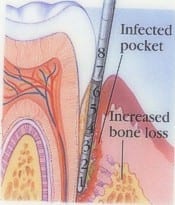
Root planing, as touched upon above, involves smoothening out the rough spots of the roots where bacteria collect and removal of plaque and tartar from them. It’s the bacteria that cause gum disease like gingivitis and periodontitis, after all. Root planing is necessary because the smoothening of the teeth keeps the bacteria from reattaching to the tooth root’s surface. To wit:
- This procedure takes about an hour or two to do over several dental hygienist visits at his clinic. You’ll typically be given numbing gel or a local anesthetic before the process starts.
- Traditional dental instruments such as the ultrasonic cleaner and scaler might be used to do root planing, but there are cutting-edge clinics out there that also have a laser that’s handy when removing tartar and plaque.
- According to the National Institute of Dental and Craniofacial Research (NIDCR), lasers are preferred if available because the minimize discomfort, swelling, and bleeding of the gums compared to standard cleaning tools and methods. However, the hygienist must be trained to use such a tool.
- Meanwhile, according to the American Academy of Periodontology (AAP), there are also cases wherein deep cleaning and root planing also involves applying antimicrobials under the gum line for the sake of killing the bacteria in there.
Comprehensive Periodontal Evaluation
Here’s what to expect when it comes to evaluating whether you’re a candidate for deep dental cleaning or not.
- When undergoing a Comprehensive Periodontal Evaluation (CPE), a periodontal probe is used on you to measure periodontal pockets, specifically the depth of these open spaces between the gums and the teeth where bacteria reside.
- According to the NIDCR, if you have normal pocket depth, they should measure 3 millimeters or less. Any deeper indicates you’re suffering from either mild gingivitis or advanced periodontitis.
- Although it’s called a probe, the act of probing your gum tissue is painless. It’s also very necessary for every person undergoing a dental checkup. You don’t want to get an evaluation that you have periodontitis when it’s already too late and several teeth of yours are already loose!
After Your Deep Cleaning
Expect for a few days to experience bleeding, tooth sensitivity, and a bit of gum soreness after undergoing root planing and scaling. Get a follow-up appointment with your dentist to get an update on how well your gums are healing from its mild to severe gum disease. He’ll also check if your periodontal pockets have gotten smaller and shallower than the last time he measured them (if they did, then the deep cleaning has worked).
Prevent gum disease and the need for another deep cleaning by brushing your teeth twice or thrice a day with antimicrobial toothpaste. Also, don’t forget to floss and gargle with mouthwash to kill off odor-causing bacteria to boot. Finally, eat a balanced diet, get regular prophylaxis and scaling by your dentist, and avoid tobacco.
Thantakit International Dental Center is Thailand’s longest established dental center. Situated in Bangkok, our clinic is renowned across the world as a destination for world-class dentistry, with most of our patients flying to us from Australia.
Please contact us today and get a FREE dental consultation.



